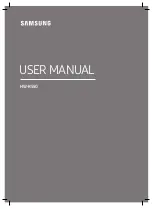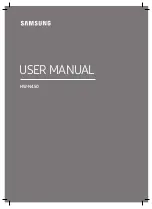
9
2.6 Boundary Compensation Device Models 202c, 204c
The two centre channel loudspeakers 202c and 204c incorporate a two position BCD that adjusts the bass level between ‘Free Space’ and
for mounting on top of a typical widescreen or rear projection ‘Television’ (202c), see below. In the 204c, the ‘Television’ setting is a
‘close-to-wall’ correction.
2.7 HF Adjustment Models 202c and 204c
The two centre speakers 202c and 204c incorporate a two position high frequency level adjustment which allows compensation for the sound
attenuation when the speaker is positioned behind a typical perforated projection screen, see below. Select ‘Screen’ when the speaker is
positioned behind a screen.
Cut
Flat
Lift
Cut
Flat
Lift
Flat
Lift
0
+1
-2
200 Hz
Level (dB)
Frequency
Lift
Flat
Cut
NORMAL
SCREEN
FREE SPACE
TELEVISION
H.F.
ADJUST
L.F.
ADJUST
0
-3
300 Hz
Level (dB)
Frequency
Free Space
TV
NORMAL
SCREE
N
FREE S
PACE
TELEVI
SION
H.F.
ADJUS
T
L.F.
ADJUS
T
NORMAL
SCREE
N
FREE S
PACE
TELEVI
SION
H.F.
ADJUS
T
L.F.
ADJUS
T
NORMAL
SCREEN
FREE SPACE
TELEVISION
H.F.
ADJUST
L.F.
ADJUST
0
1
3 kHz
Level (dB)
Frequency
20 kHz
NORMAL
SCREE
N
FREE S
PACE
TELEVI
SION
H.F.
ADJUS
T
L.F.
ADJUS
T
SCREE
N
TELEVI
SION
H.F.
ADJUS
T
L.F.
ADJUS
T
2.5 Boundary Compensation Device Models 201, 203, 205
Models 201, 203 and 205 incorporate a three position bass level control situated on the top of the terminal panel (see below). The ‘FLAT’
position is the factory setting which is suitable when the loudspeakers are positioned more than about 0.75m from the front wall, commonly
termed ‘free space’. The ‘CUT’ setting reduces the bass level by about 1.5 to 2dB for when the loudspeakers are positioned with their backs
right up against the wall. The ‘LIFT’ setting increases the bass level by about 1dB for free space positioning in rooms which absorb significant
amounts of the bass output. Experiment with the setting to determine which balance best suits your particular situation.
207 BCD adjustments are detailed on a seperate sheet.











































